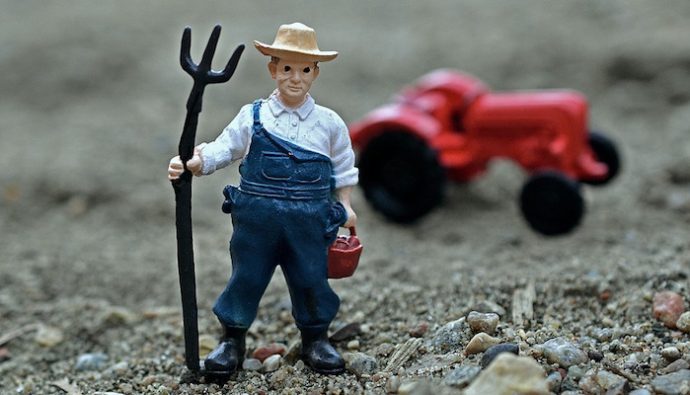I’m not a farmer.
I’ve wondered at times how I might read the Bible differently if I was. Much of the Bible was written from an agrarian sense of perspective. We read about fields, crops, and harvests in its pages. Jesus told stories about farmers and made spiritual points using imagery from the field. I would imagine that working on the land might change and even deepen the way I read the Bible.
But even though I’m not a farmer, the principles that seem to relate only to the farming society of Israel are still applicable in a 21st century driven by technology and business. Take, for example, the seemingly arcane and very agricultural command in Leviticus 19:
“When you reap the harvest of your land, you are not to reap to the very edge of your field or gather the gleanings of your harvest. Do not strip your vineyard bare or gather its fallen grapes. Leave them for the poor and the resident alien; I am the Lord your God” (Lev. 19:9-10).
God did not want His people reaping to the edge. He wanted them to have some margin at the end of their rows. Now before we disregard this verse as something non-applicable to us, consider why the Lord would make this command. It wasn’t just about preserving His own people. He didn’t tell them to create this kind of margin because doing so is personally healthy and psychologically balanced. He gave the command for the sake of other people who might wander into those fields.
God is so concerned about the poor and the foreigners that He built in a means into the regular life of His people in order to provide food for them. He made sure that the people didn’t harvest all the way to the edges of the field. Some days the people might not come; other days they would. Regardless, the edges of the field were “just in case.”
- Just in case there is someone traveling who needs food.
- Just in case you have the chance to share with someone who is in need.
- Just in case someone else needs to feed their family.
- Just in case the leftovers can be useful after all for something other than giving you more.
And when we see those “just in case” reasons, we start to see why this principle is so important for us. It’s because we are people who constantly “reap” to the edges of our lives. We feel the way Bilbo Baggins felt in The Fellowship of the Ring: “I feel thin, sort of stretched, like butter scraped over too much bread.” How true. We look around at our lives and find ourselves having very little margin. We find ourselves, despite our best intentions, spread thinly in our money, our time, and our emotions. To use the language of Leviticus, we tend to reap to the edge of our fields. We use all of everything we have – all our money. All our time. All our energy. All our everything – and sometimes more.
As a result, we don’t have anything left “just in case.” We don’t have time for a conversation in the middle of the day because our schedule is already too packed. We don’t have time to get to know our neighbors because our evenings are swarming with activities. We don’t have any money to contribute to the mission trip because every dollar is accounted for.
We live in a margin-less world. Everything from our time to our money is pretty much spoken for. We are reaping to the end of the fields. In fact, we are going back over the fields of our lives a second and third time, looking for any spare cent or second that has not been accounted for.
This isn’t how we were meant to live. It’s certainly not how we live if we expect the Lord to bring gospel oriented opportunities into our lives. And living in a margin-less way is, at the root, a lack of faith in God’s character. Think about it from the perspective of the farmer. What might cause a farmer to reap everything, even the edges, instead of obeying this command of margin?
At some level, it’s fear. Fear that there wouldn’t be enough. Fear of missing some profit. Fear that at some point in the season, the family would be in need. And the way you combat that fear is with faith. You believe that God is generous. That God will provide. That God will give us enough. That’s how you leave the edges unreaped.
We can leave the edges of our lives unreaped because we are confident in the generous provision of God. And we are further confident that God is busy preparing good works for us to talk in – and that we can walk in them if we leave some room at the edges of our lives “just in case.”
Good things can happen when we live with a sense of “just in case.” We know this is true because during some dark days of Israel, days of great idolatry, there was still a man who took seriously the law of God and didn’t reap to the edges. Because he didn’t, a young widow named Ruth was able to glean the wheat from the edges in order to provide food for her and her mother-in-law, Naomi. Boaz, the owner of the field, ended up marrying the gleaner Ruth, and a few generations later comes Jesus Christ.
Great things can happen when you don’t reap to the edges of your life. Amazing things can occur when you live with a “just in case” mentality.
Subscribe to MichaelKelley.co
Never miss a new post. Subscribe to receive these posts in your inbox and to receive information about new discipleship resources.




